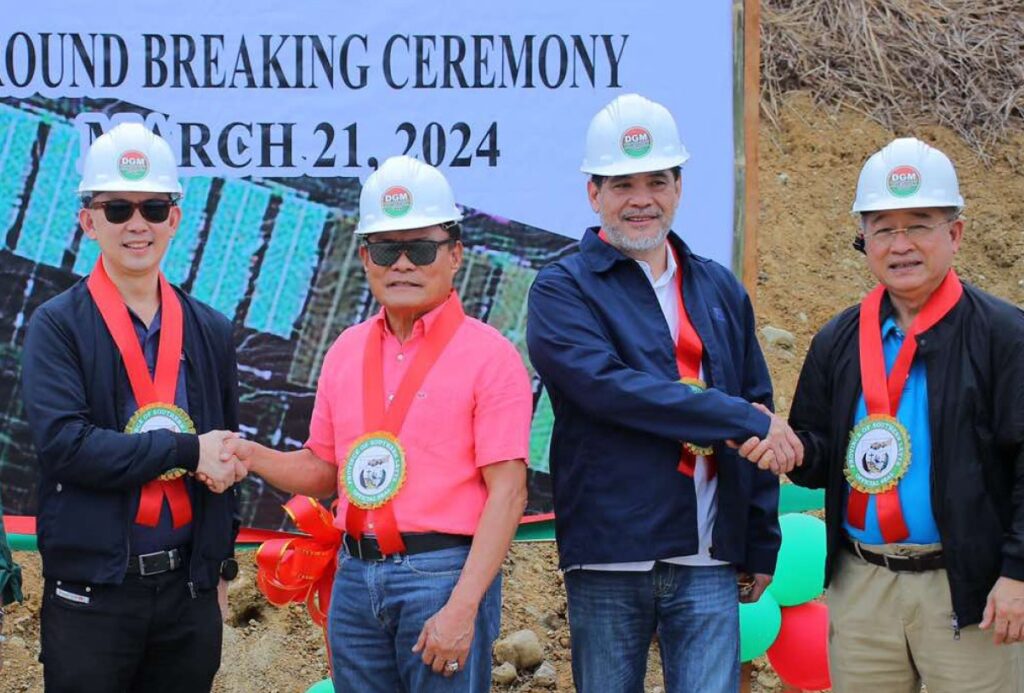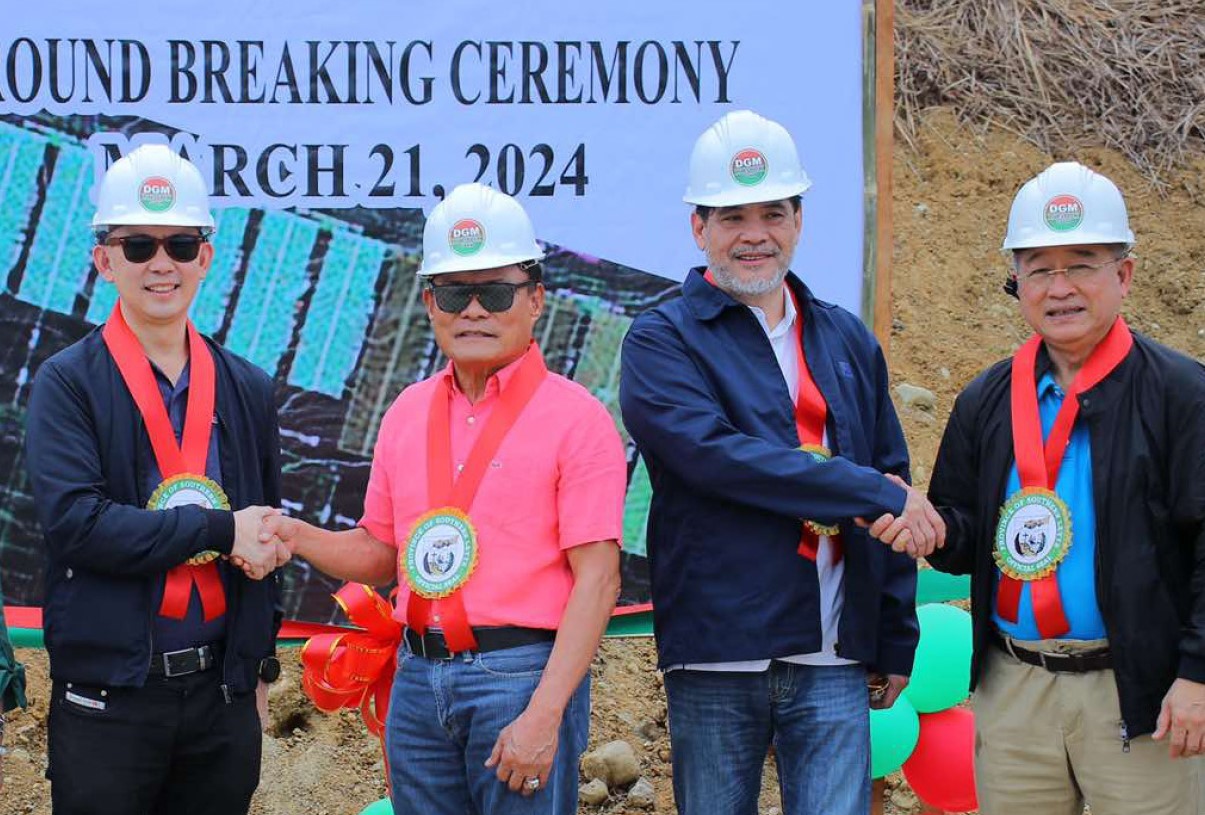The Development Bank of the Philippines (DBP), a state-owned financial institution, is intensifying its efforts to support the present administration’s strategic initiatives for food security.
According to Michael O. de Jesus, President and Chief Executive Officer of DBP, this includes launching a lending program aimed at revitalizing the local hog industry.

Photo above shows DBP Director Atty. Jaime Paz (3rd from left), while shaking hands with Sakol Cheewakoset, Chairman of Charoen Pokphand Food Philippines Corporation (CPFPC), during the groundbreaking ceremony for a livestock farm in Tomas Oppus, Southern Leyte. Joining them were (from left:) Nattakorn Sujipittham, CPFPC Vice President; and Southern Leyte Governor Damian Mercado.
During the groundbreaking ceremony for a livestock farm in Southern Leyte, De Jesus announced that the DBP’s Swine Repopulation, Rehabilitation, and Recovery (Swine R3) Credit Program was designed to assist in the establishment of bio-secured swine farms nationwide.
The program was developed in collaboration with the Department of Agriculture (DA).
“The SWINE R3 Program is a tangible manifestation of DBP’s support to President Ferdinand R. Marcos, Jr.’s vision of ensuring food security in the country, providing financial assistance to local hog raisers to strengthen the pork production chain,” de Jesus said.
Ranked as the eighth largest bank in the Philippines by assets, DBP offers credit support across four priority sectors: infrastructure and logistics, micro, small and medium enterprises, the environment, and social services and community development.
Promoting hog repopulation, modernizing pork production
The Swine R3 program complements the DA’s Integrated National Swine Production Initiatives for Recovery and Expansion (INSPIRE) program, which aims to promote hog repopulation and modernize pork production.
The program provides credit assistance to small businesses and local government units for establishing bio-secured wean-to-finish facilities, or entering contract growing agreements with integrators such as Charoen Pokphand Food Philippines Corporation.
As of January 2024, DBP has already approved PHP 2.72 billion in credit support under this facility, with projections to increase to PHP 5.57 billion by year-end, significantly boosting domestic pork production.
The DBP’s initiatives have already led to an annual increase in hog production by an estimated 59,501 heads, adding approximately 5.95 million kilos of pork products to the market.
Current projects include a 2,400-sow farm in South Cotabato and a 6,000-sow farm under construction in Negros Occidental, expected to contribute 686,400 heads or 75.504 million kilos annually.
Additionally, DBP is allocating PHP 700 million to establish a 3,000-sow breeder farm and wean-to-finish farm in Palawan, projected to produce 84,000 piglets annually from the breeder farm and 72,000 heads from the wean-to-finish facility.
“DBP is eager to ramp up its assistance to local hog raisers, firmly believing that a robust and competitive agribusiness sector is crucial to achieving a food-secure Philippines,” de Jesus stated further.








